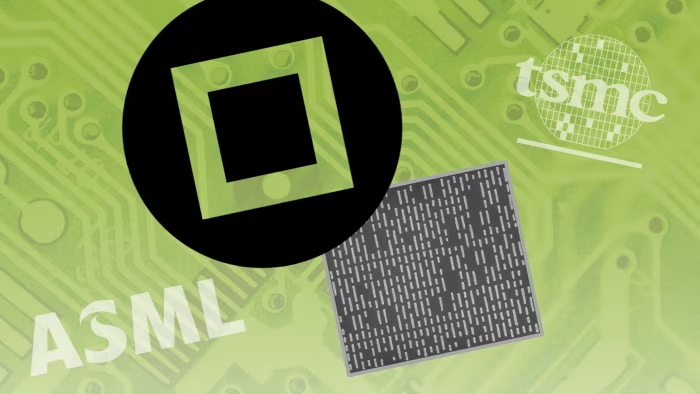
Silicon Valley chip start-up raises $100mn to take on TSMC and ASML
Unlock the Editor’s Digest for free
Roula Khalaf, Editor of the FT, selects her favourite stories in this weekly newsletter.
Silicon Valley investors, including Peter Thiel’s Founders Fund, have invested more than $100mn in a secretive US start-up with an ambitious plan to challenge the dominance of Taiwan Semiconductor Manufacturing Company and ASML in cutting-edge chipmaking.
San Francisco-based Substrate, founded in 2022 by James Proud and his younger brother Oliver, plans to use particle accelerators to make chips much more cheaply than today’s state-of-the-art equipment. The pair has no previous experience in semiconductor manufacturing.
The start-up has attracted funding from big-name investors including Founders Fund, General Catalyst and Valor Equity Partners, despite the huge logistical and financial challenges Substrate faces to succeed in one of the most technically complex industries in the world.
Its fundraising of more than $100mn, completed last year but not previously disclosed, valued the company at more than $1bn, Substrate said.
Proud told the Financial Times he wanted to boost homegrown US chip manufacturing capabilities at a time when American tech groups, including Apple and Nvidia, had become overwhelmingly reliant on foreign companies for cutting-edge semiconductor production.
Proud said he planned to build alternatives to Netherlands-based ASML’s advanced lithography machines, needed to etch minuscule transistors on to silicon wafers, and TSMC’s giant fabrication plants — ambitions that he said would cost “many billions” of dollars to fulfil.
He added that his previous lack of semiconductor experience was “definitely a positive, because if I had, I would have thought this is impossible”.
Semiconductor foundries cost tens of billions of dollars to build, with ASML’s most advanced machines costing hundreds of millions each. Proud claims his approach can reduce the cost of producing a leading-edge wafer from a projected $100,000 to “closer to $10,000” by the end of this decade. He hopes to have production up and running by 2028.
Proud, who was born in London but is now an American citizen, said he was driven by a desire to help the US beat China in the race for global technological dominance.

“The company itself is very ideological,” Proud said. “The US needs to have advanced semiconductor production and we need to do it at high volume.”
Proud said “foreign monopolies” holding “the two main choke points” on chip production was a “glaringly scary dependence”. Substrate is aiming to produce chips “with a cost structure that enables [the US] to compete against China”, he added.
Substrate’s emergence from three years developing its technology in secret comes as the US government is working to secure the future of struggling chipmaker Intel, including taking a stake in the Silicon Valley group, and China threatening to throttle exports of the rare earth minerals that are vital to the global tech supply chain.
“These are points in history that are really important to get right,” said Trae Stephens, a Founders Fund partner who led the firm’s investment in Substrate. “There’s a lot of pressure right now for the [US] government to figure out how to ensure that we have a semiconductor supply chain that is reliable and resilient . . . That is the moment that James is capturing right now.”
Substrate’s technology involves using particle accelerators as the light source for an X-ray based lithography system, using even shorter wavelengths of light than ASML’s latest “extreme ultraviolet” machines to imprint circuits on to silicon.

The system, which Substrate has demonstrated at US National Laboratories, has created complex patterns on a wafer at a resolution Proud claims is comparable to ASML’s latest “High NA” EUV tools. That would make it suitable for producing chips at the 2nm process node, he said, which is the semiconductor industry’s current state-of-the-art technology. Substrate also plans to use existing chipmaking tools.
Proud said building a “much more vertically integrated” foundry would require raising “many billions — at some point tens, maybe even hundreds of billions of dollars” — as the business scales to multiple facilities.
“The ambition to go and build the fabs themselves is huge and will require a lot of capital,” Stephens said, requiring a mix of strategic investment, debt and government funding. “This will be an all-hands-on-deck moment.”
Proud moved to Silicon Valley aged 19 after becoming an early recipient of Thiel’s $100,000 fellowship, which pays youngsters to become entrepreneurs instead of going to college. The best known of Proud’s previous ventures, health tech start-up Hello, raised $40mn in 2015 but shut down two years later.
Stephens said Proud had assembled an “incredibly impressive” team at Substrate, including scientists and engineers from US National Laboratories, TSMC, Applied Materials, AMD, Google and Qualcomm.
“[Substrate] is obviously a much bigger bite of the apple” than other chip start-ups, Stephens said. “But if they win, they win really, really big.”
First Appeared on
Source link






